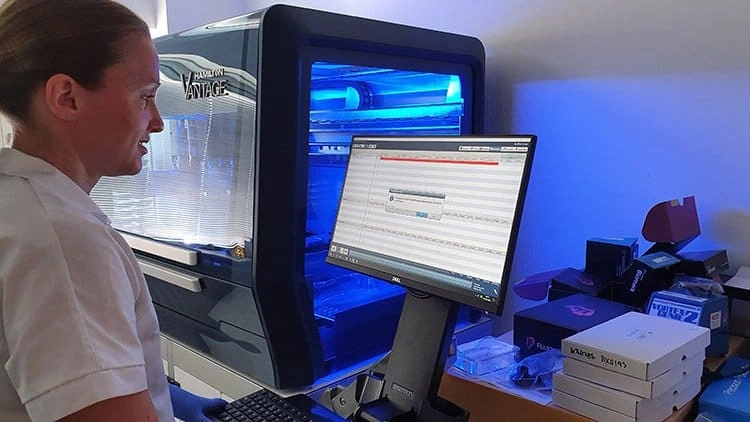Meso Scale Discovery assays detect proteins in single and multiplex formats using next-gen electrochemiluminescent techniques. Meso Scale Discovery (MSD) assays combine electrochemiluminescent and multiarray technology to bring highly dense information through miniaturization and parallel processing of study samples. So, Meso Scale Discovery multiplex and singleplex formats include a diverse portfolio of popular MSD panels such as Human ProInflammatory 9-Plex Ultra-Sensitive Kit, Muscle Injury Panel 1, and Akt Signaling Panel 2.
MSD has over 400 assay kits and customization capability to quantify diverse analytes in complex biological matrices. Moreover, Meso Scale multiplex assays empower scientists to generate study results in less time and at low costs. MSD assays are widely adopted by pharmaceutical companies and research organizations. Some major drug development applications include personalized medicine, companion diagnostic, vaccine studies, preclinical and clinical studies, immunogenicity, biomarker discovery, and assay development.
Let us dive deep into some of these applications and understand the role MSD assay plays in the drug development process.
Measurement of biomarkers
Complex clinical samples such as vaginal fluids, cerebrospinal fluids, and sputum are challenging to analyze using traditional immunoassays. Limited sample volumes, a wide concentration range, and complex biological matrices can make immunoassays hard to manage. Here MSD assays are beneficial in the measurement of biomarkers. MSD assays are highly sensitive, have a wide dynamic range, employ multiplexing solutions, and can perform well in complex matrices. Moreover, they are suitable for regulated environments with the option of IQ/OQ/PQ validation and GLP compliance and 21 CFR part 11 support.
Assessment of toxicity
Toxicity testing includes assessing drug or disease-induced changes using histochemical evaluation and a series of potential biomarkers indicating toxicity in tissues and organs. To assess accurate toxicity, scientists need systems that are consistent and sensitive with a wide dynamic range. MSD assays not only cover all the above characteristics but also provide multiplexing capacity to save time and samples. MSD has a full spectrum of multiplex assays to assess cardiotoxicity, kidney injury, and acute-phase inflammatory responses.
Evaluation of compound inhibition
Highly selective and potent small molecule compounds have proved to be beneficial in targeted medicine for neurodegenerative disorders, cardiovascular disease, and cancer. Small molecule compounds help decipher the cell signaling pathways underlying several disease mechanisms. MSD assays can be efficiently used to assess the inhibiting characteristics of a small molecule compound against cell signaling targets. These evaluations are particularly crucial for dose-response studies.
Study of protein therapeutics
Immunogenicity testing is an integral part of the drug development process, with the FDA mandating immunogenicity testing for all drug products. To fulfill these stringent regulatory recommendations, scientists need more robust and tolerant immunoassays. Over the years, MSD has worked with the drug development industry to develop highly sensitive and robust assays for immunogenicity testing. MSD immunogenicity assays involve fewer washing steps, which helps detect low-affinity antibodies. Besides, flexible assay formats mean researchers can test different drug types such as proteins, peptides, and antibodies. Moreover, MSD has a plethora of assay kits and assay development material to cover every aspect of immunogenicity testing in the drug development journey.


